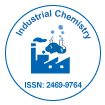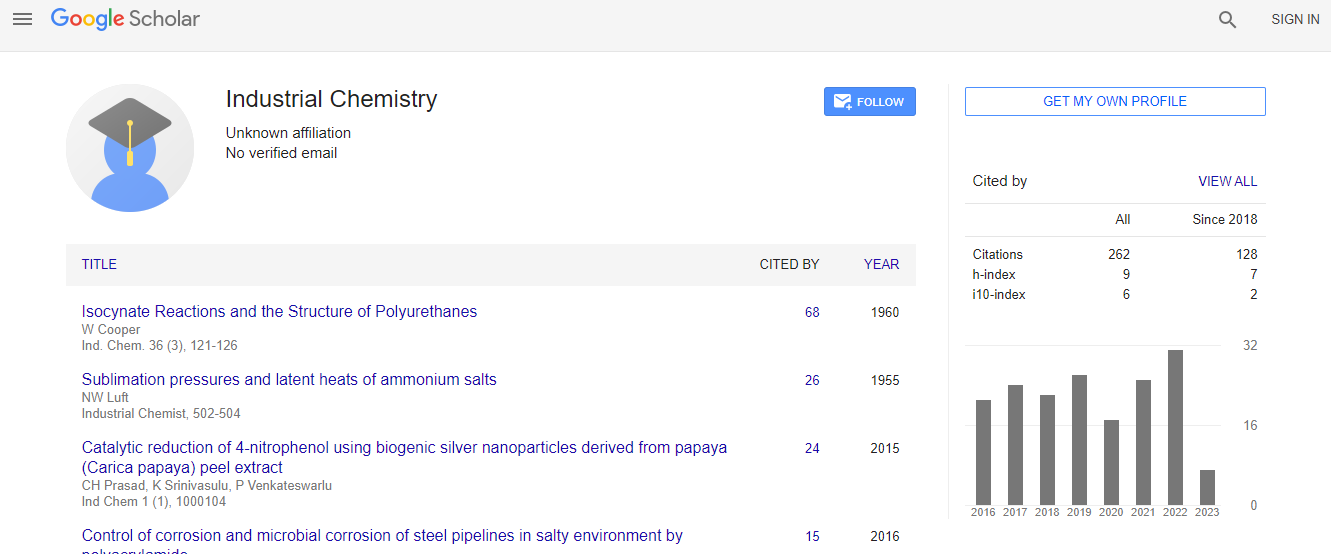Our Group organises 3000+ Global Conferenceseries Events every year across USA, Europe & Asia with support from 1000 more scientific Societies and Publishes 700+ Open Access Journals which contains over 50000 eminent personalities, reputed scientists as editorial board members.
Open Access Journals gaining more Readers and Citations
700 Journals and 15,000,000 Readers Each Journal is getting 25,000+ Readers
Google Scholar citation report
Citations : 262
Industrial Chemistry received 262 citations as per Google Scholar report
Indexed In
- Index Copernicus
- Google Scholar
- RefSeek
- Directory of Research Journal Indexing (DRJI)
- Hamdard University
- EBSCO A-Z
- OCLC- WorldCat
- Scholarsteer
- Geneva Foundation for Medical Education and Research
- Euro Pub
Useful Links
Recommended Journals
Related Subjects
Share This Page
Process improvement for arsenic removal from dirty acid wastewater
2nd World Conference on Industrial Chemistry and Water Treatment
Dongyun Du
South-Central University for Nationalities, China
ScientificTracks Abstracts: Ind Chem
Abstract
The aim of this study is to reduce the gross weight of As-containing hazardous waste in the process of treating dirty acid wastewater. Research focused on arsenic removal from gypsum by washing. With washing solution pH being 3.0 and solid liquid ration being 1:5, arsenic leaching concentration of gypsum after the washing process reduced from 40 mg/L to 2.1 mg/L. In pickling condition, As(III) was oxidized to As(V) and the size of gypsum crystal was reduced. The above are reasons for decreased arsenic leaching concentration. In addition, comparing to one-stage treatment process by using Ca(OH)2, the threestage counter current treatment process showed several advantages. First of all, arsenic concentration of filtrate was reduced from 5 mg/L to 0.2 mg/L, which is below discharge limit (0.3 mg/L) (GB26132-2010). Secondly, it also avoided the production of ferrous arsenate slag. With the use of this novel process, gypsum could become nontoxic and arsenic concentration could be effectively reduced to 0.2 mg/L by adding Ca(OH)2. Therefore, such process has great potential in various industrial applications.Biography
Dongyun Du has abundant theoretical knowledge and practical experience in arsenic wastewater treatment. He has developed three novel methods for the disposal of dirty acid wastewater and two kinds of absorbent material for removal of arsenic from groundwater. He has developed these technologies after years of experience in research, teaching and administration in university. Recently, he studied on the recovery of valuable metals from waste residues in metallurgical industry and the stabilization/solidification technology about high arsenic content of solid waste.
Email: dydu666@mail.scuec.edu.cn

 Spanish
Spanish  Chinese
Chinese  Russian
Russian  German
German  French
French  Japanese
Japanese  Portuguese
Portuguese  Hindi
Hindi 